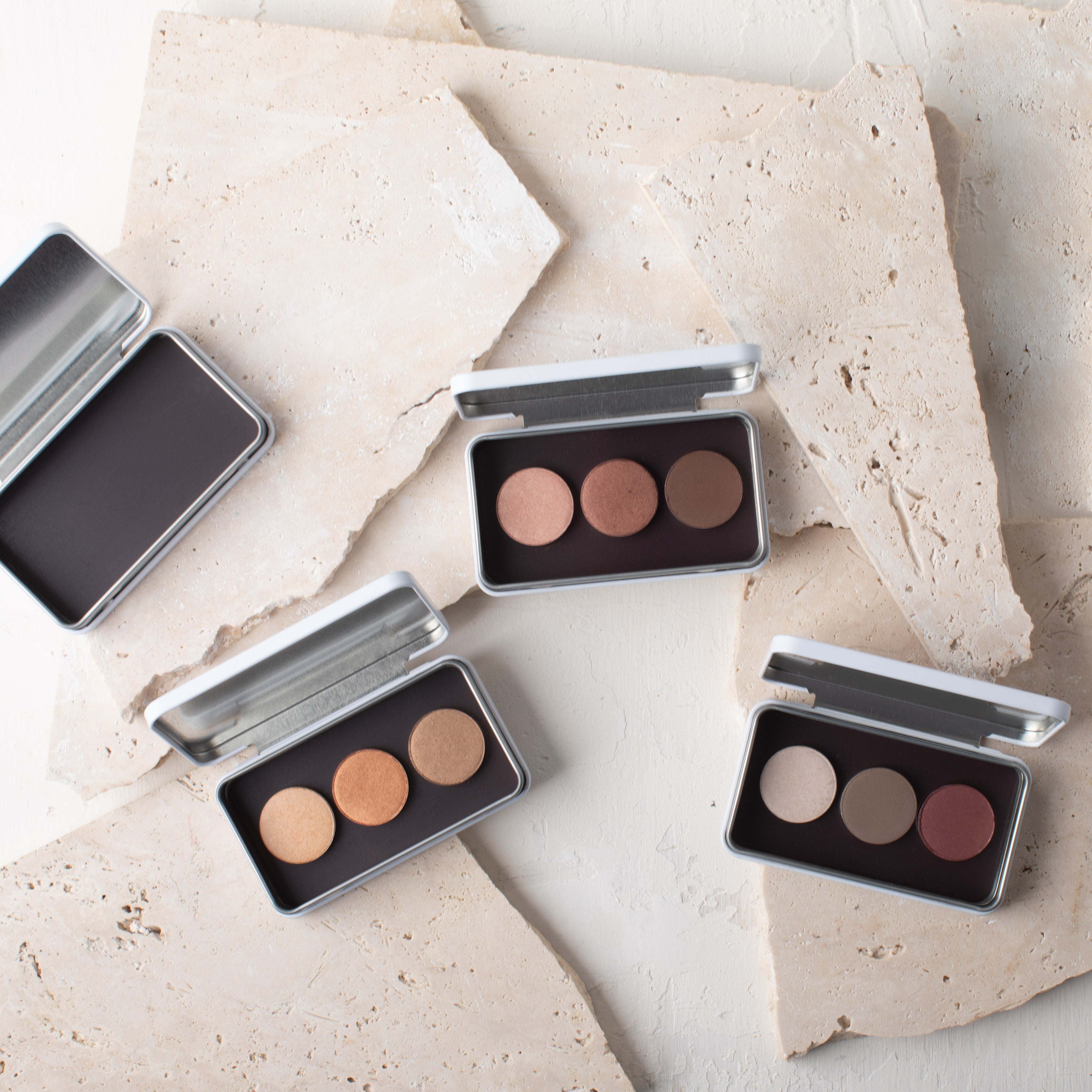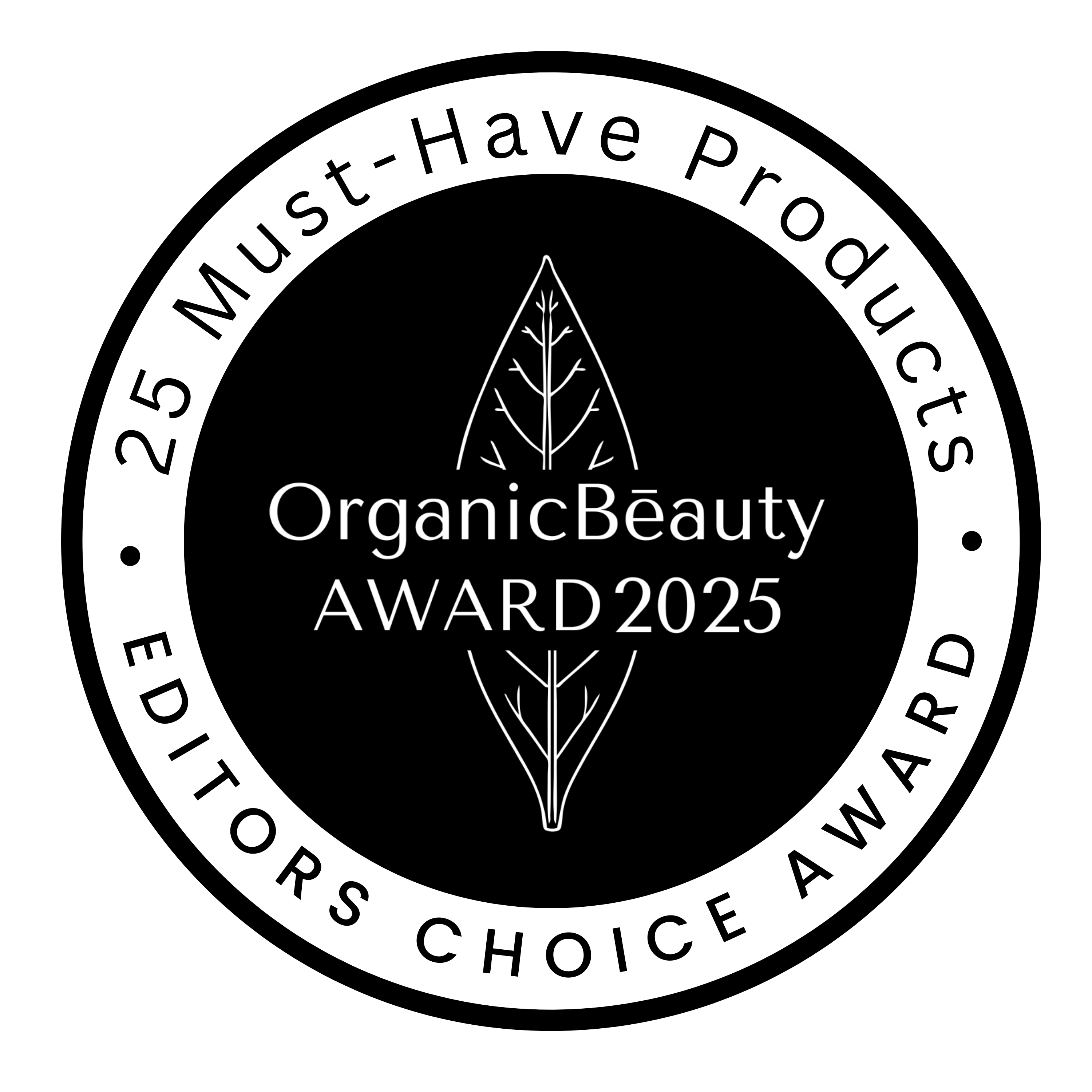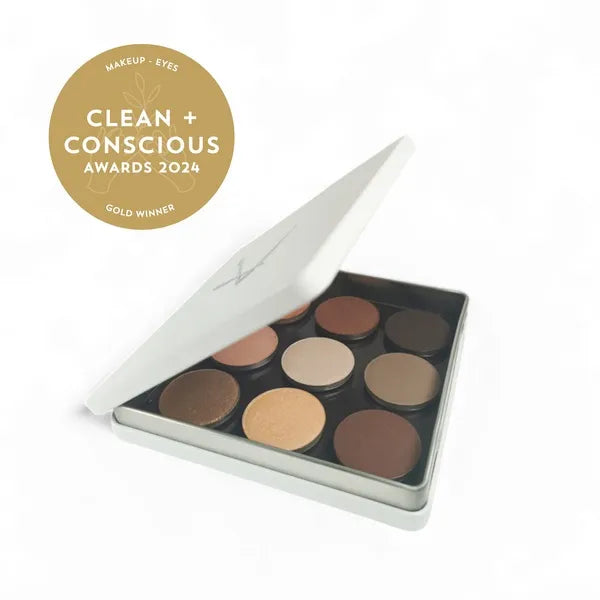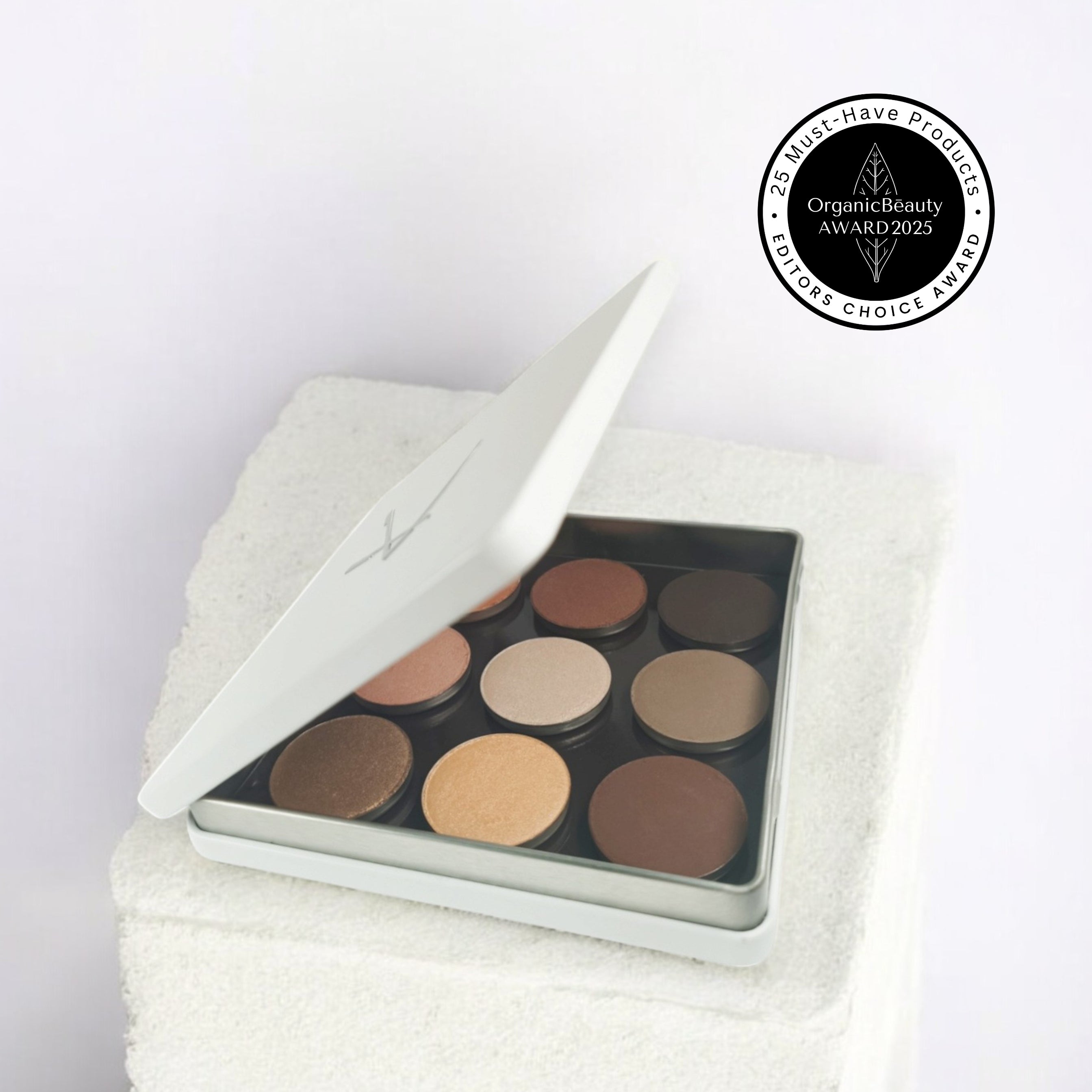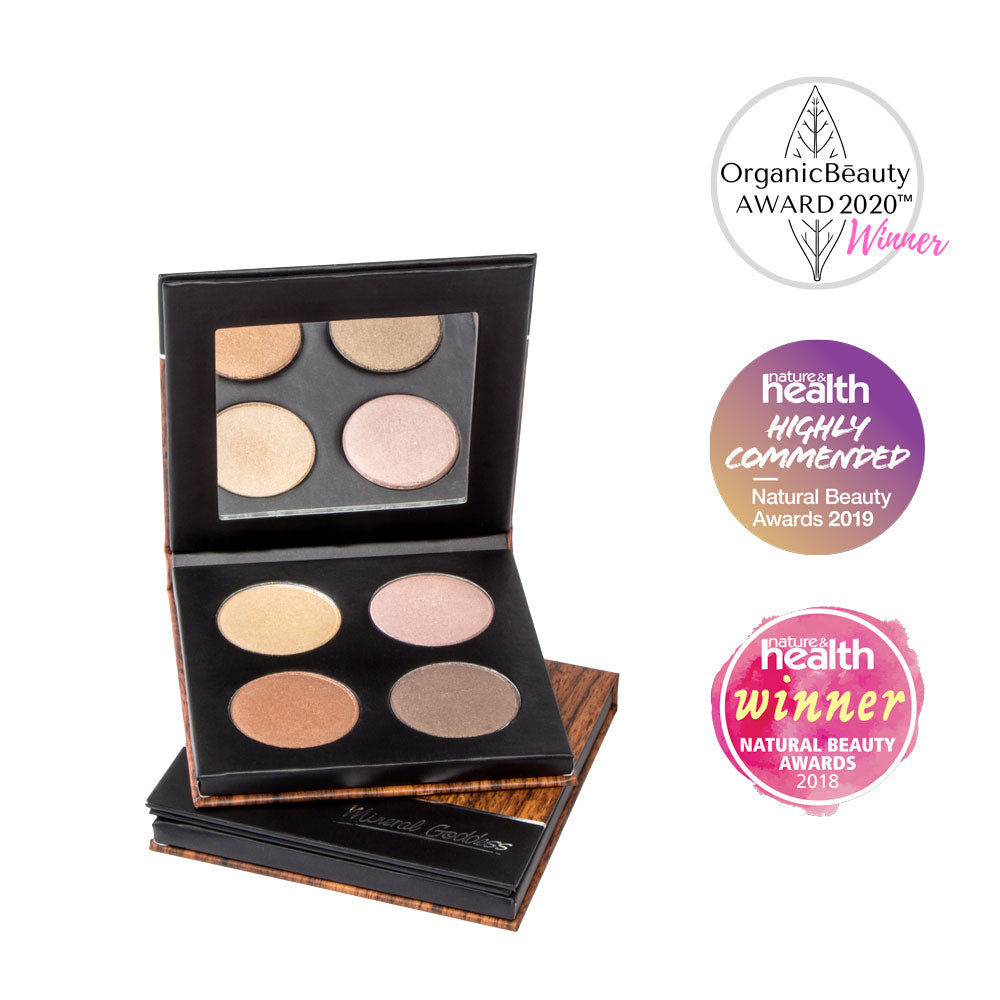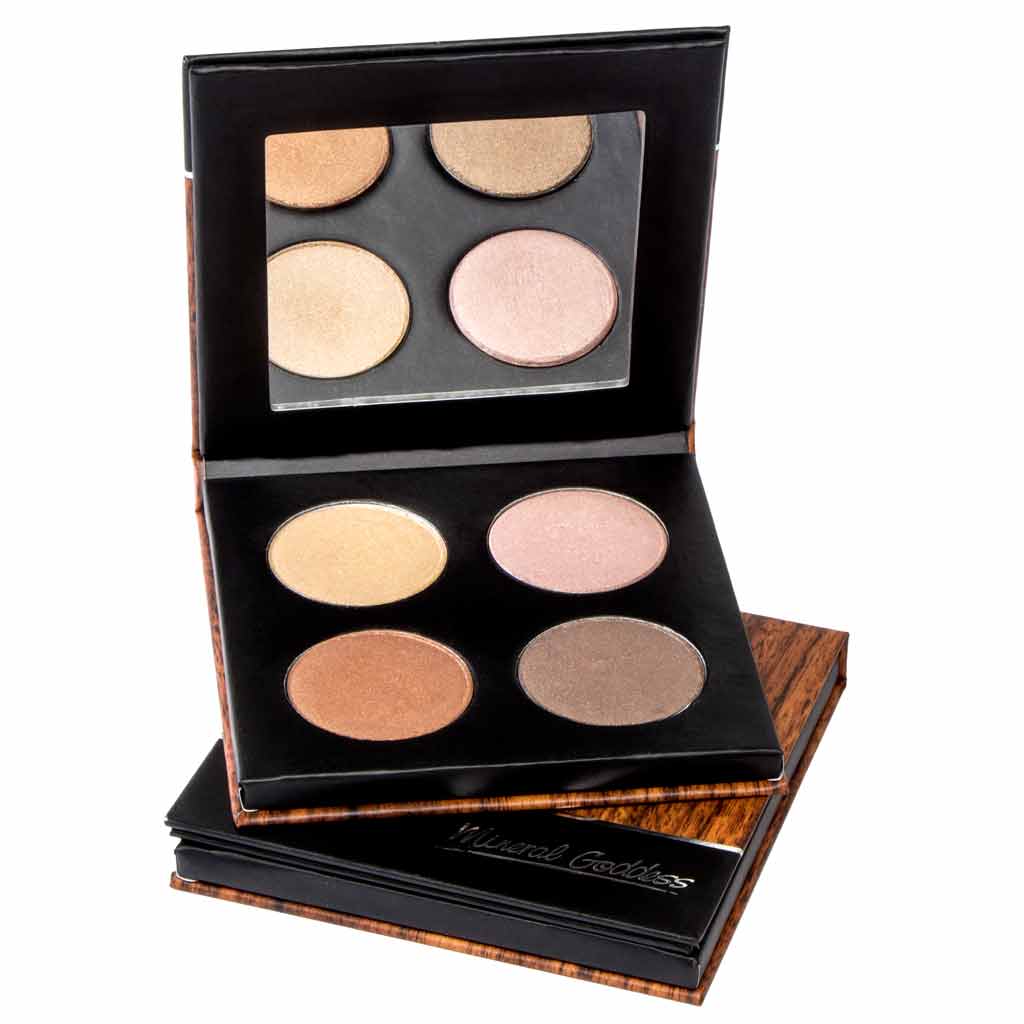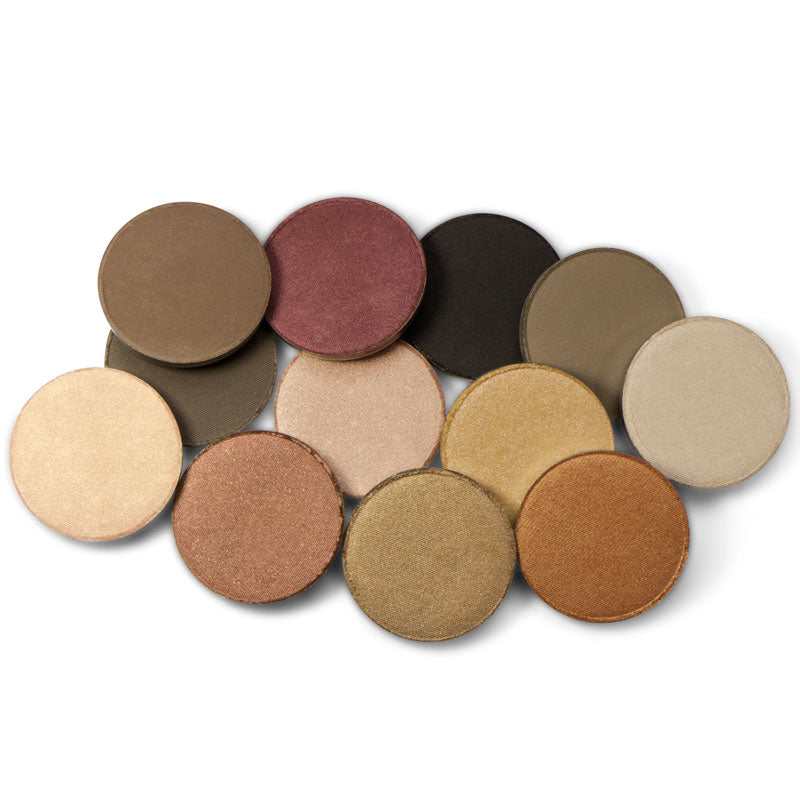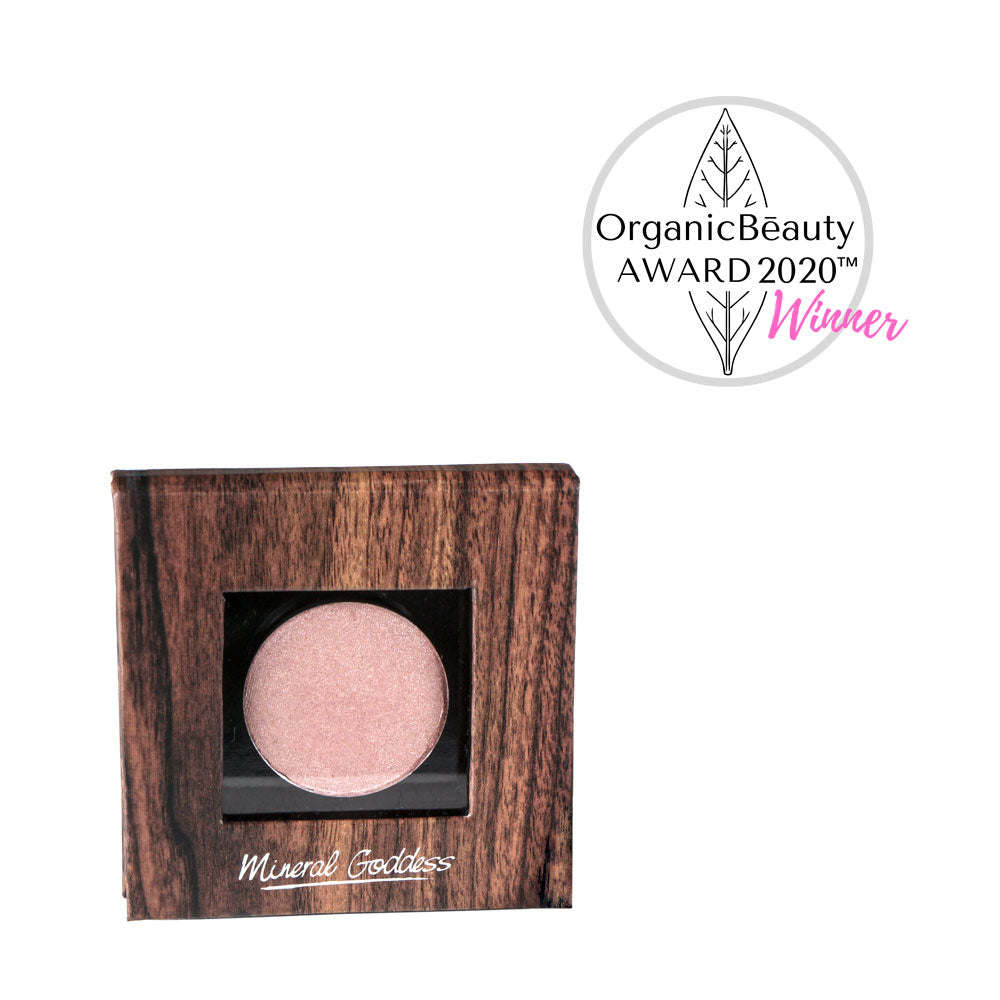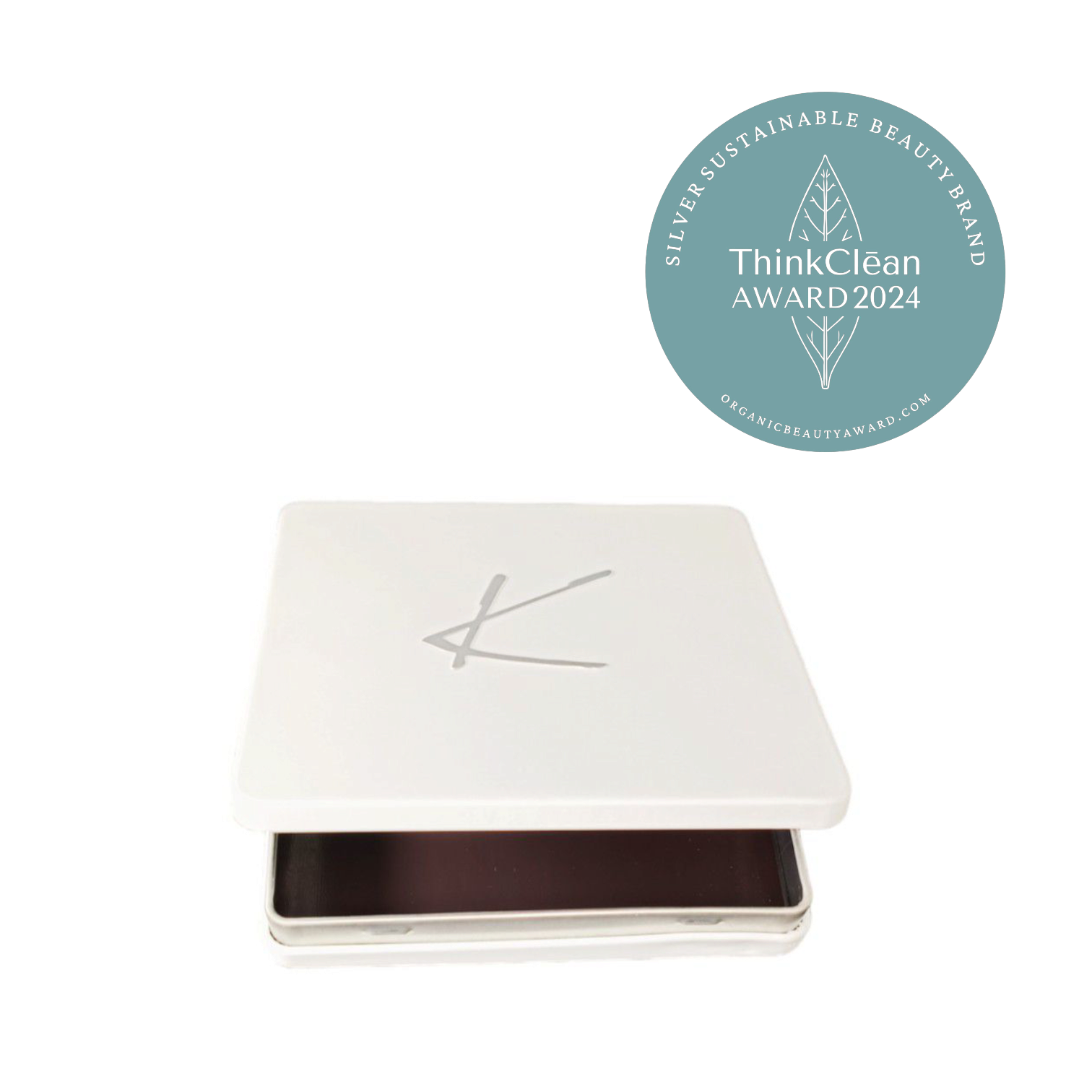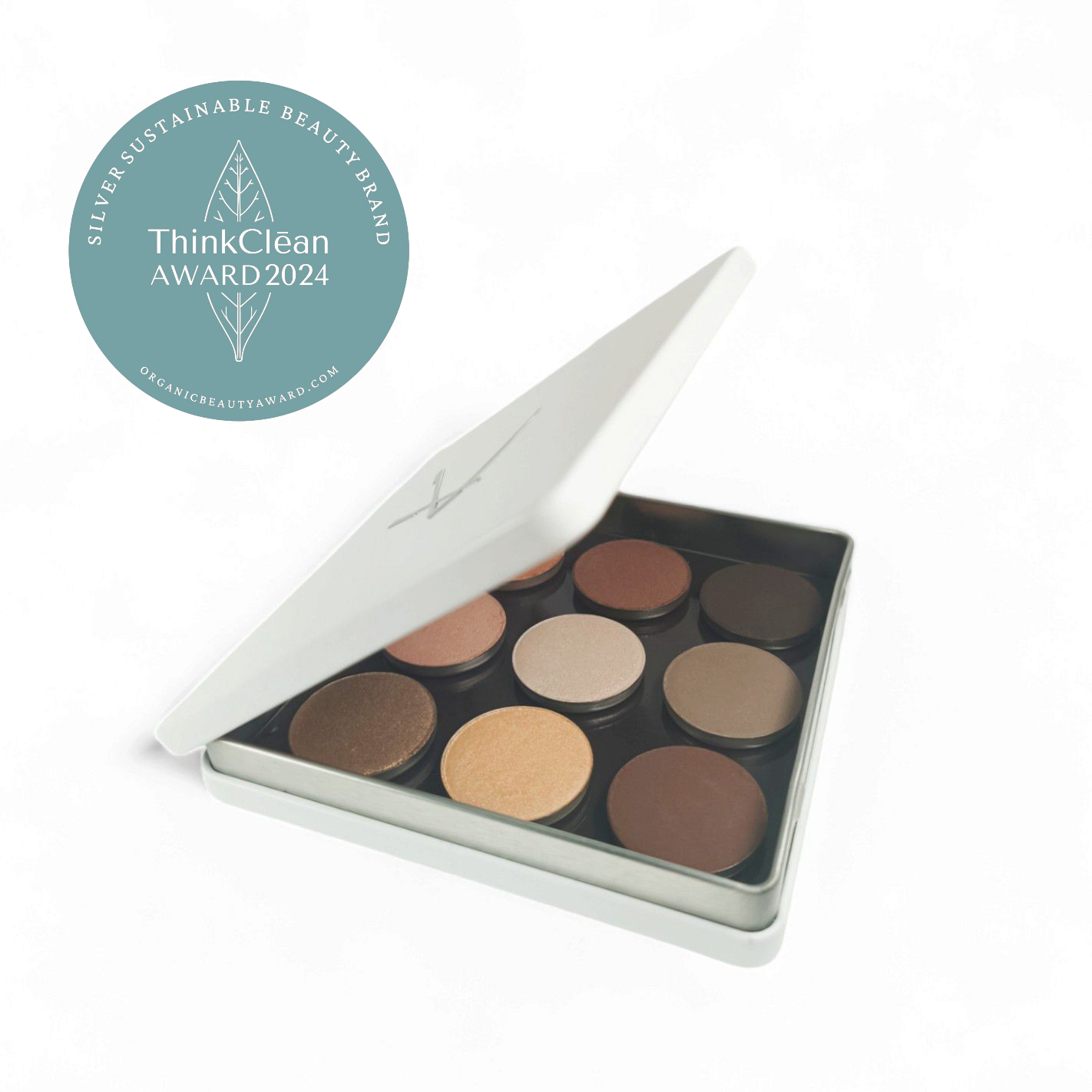Hygiene Basics and why you should choose Loose Pigments
- by Kylie Eustace
Hygiene basics and why Loose Pigments are an essential product for Makeup Artists!
While these techniques have long been the industry standard, the ongoing covid-19 situation has really bought hygiene and safety practices to the forefront for beauty service providers.
For best hygiene practices and to prevent the risk of cross-contamination, all professional Makeup Artists must decant the products they use into smaller, single-use containers or palettes. The risk of harmful pathogens, bacteria, viruses, and fungi, etc must be avoided.
We must be very mindful to protect our clients at all times.
Below, we discuss hygiene basics and why It is best professional makeup Artists use loose products rather than the traditional consumer pressed pigments.
When it comes to hygiene, double-dipping is always a big NO-NO!
Decanting all products, whether cream or powder is absolutely necessary. Simply wiping over the top layer of the pressed product and then spraying it with Alcohol is just not enough to be 100% sure the product will be left germ free as the germs could potentially absorb deep into the product.
In the past the only past way to potentially disinfect a pressed powder was by scraping a thick enough layer off the pressed product, and spraying it/ soaking it with alcohol which pretty much ruins it. If an artist was to still use a new pressed pigment for their work they would need to decant the product by scraping some of the product off the pressed pan into a stainless steel or ceramic dish/tray and apply the product from the decanted dish to ensues they do not work from the shadow pan itself.
Cream pigments are also a great option but these must be set with a shadow or powder, so again loose powders are best to set a cream product.
With the current, reopening of makeup Services after the covid halt, Artists need to take extra care to get it right. The time is perfect for a refresher on the best hygienic practices.

Hygiene
Before applying makeup to yourself or your client it is very important to ensure you practice good personal and professional Hygiene. Keep your make-up equipment and area sanitized and clean at all times.
Always use a cleared, cleaned and sanitized surface to set up your makeup area for personal use at home or your professional workstation. Ensure makeup products are clean, have been handled and stored correctly, and are within their recommended use-by-date. Artists must place a towel or paper towels under your working area and use a cape on your client.
Always wash hands well before makeup Application and Keep Hand Sanitizer, brush cleaner and disposables handy. If you cannot wash your hands on a job always use a Hand sanitizer that is at least 70% Alcohol and rub the solution all over your hands and wrists. Always Use clean brushes, spatulas and disposals when applying makeup. Metal/ stainless steal and ceramic spatulas and utensils are best to use on the job unless you are using disposables as these are not porous and are easy to sanitize.
I can’t mention enough to never double dip into your products once you have made contact with the skin or lashes. Previously, if a makeup artist was using a pressed product for client use, as mentioned you could wipe over the pressed product with a tissue to scrape off the top layer and then sanitize the pressed shadow or product by spraying alcohol over the product but this is no longer acceptable during the current pandemic. As mentioned above reusing makeup kit/tester products in this way is not recommended as it could potentially be cross-contaminated so products must only be used if decanted eg: scraped into a dish to be used.

Brush Hygiene
Personal use Brushes need to be regularly washed with soap/ detergent and left in the sun to dry. Professional use brushes need to be thoroughly washed and sanitized after each client.
For professionals, it is a good idea to have several Professional brush sets. Keeping extra brush sets on hand is essential so you always have a clean dry set ready for use when needed on jobs where you have multiple clients. It is not recommended to reuse brushes on a job but If you are in a situation where you drop a brush or must reuse a brush on a job you should thoroughly sanitize your brushes between clients by drenching the brush fibers in alcohol to completely kill germs and use Brush cleaner to remove excess makeup. A small stainless-steel dish is a great option for soaking your brushes in.
Always wash and sanitize your brushes at the end of each day.
Synthetic/cruelty-free makeup Brushes are better, as these are the easiest to clean and sanitize and do not absorb and hold moisture or bacteria, the way animal-hair brushes will. This can capture germs in the hair cuticles.
Vegan brushes are also softer on the face, blend products better, and do not shed the way animal hair brushes typically do.
Importantly, animals are not harvested or exploited in the making of synthetic makeup brushes, so they are also a less harmful option all round.
We don't recommend using Pencils on clients anymore. The recommended sanitation method was to soak the tip of the pencil in Alcohol and sharpen them in a sanitized pencil sharpener before use. If you are still wanting to use pencils on clients it might be a good idea that the pencil is purchased by or gifted to your client.
I personally love to mix eye and lip primer with lipstick to create my own liquid lip liner. You can check out my technique in this little video.
I like pot wax-based eyeliners Mineral Goddess Intesity is my fav as these are similar to a pencil liner's consistency.
Similarly, use disposable applicators such as disposable, lip wands, mascara wands, etc. when doing multiple clients
Don’t use felt-tip eyeliners in your professional kit unless you will gift them to your client after their sole usage, as they are impossible to completely sanitize.
Beauty blender sponges are not multi-client tools and are suitable for one use or personal use only. Disposable wedge sponges are better for Artist s to use if you like working with sponges.
Don’t use or share your personal makeup products on your clients or share your personal use products with others, especially don’t share lipsticks, eye products, liners, and mascara. These items can easily get contaminated and spread germs.

Correct storage
Do not leave your make-up in the bathroom as steam can moisten your products leading to bacterial growth. Ensure you put lids back on your products firmly after using them. Common hair and beauty sprays will also produce tiny airborne particles that can travel far and quickly, to contaminate any make-up inadvertently left uncovered.
Do not leave your make-up in an area subject to high temperatures, rather store your make-up in a cool, dark area like a makeup case, cupboard or drawer. Make-up should always be kept under 30 degrees Celsius. Never leave your make-up in direct sunlight or in your car if it is outdoors in the sun, even for short periods of time.
Products shelf life
Dry pure Mineral Pigment products such as Pure loose Mineral shadows, blush, foundation are inorganic and do not contain any water so bacteria cannot form or be supported in them when they are stored and used in a hygienic manner. So, in theory, unopened pure loose Mineral makeup products should last forever but recommendations are detailed below.
Wet products. All Products that are wet or creamy contain moisture/ water and or oils.
Preservatives – either natural or synthetic are essential in all water-based products to prevent, bacteria, and fungi growth. Oil-based products can have a shelf life with the addition of antioxidants such as vitamin E
Once opened Use-by
Loose products are the safest however, wet or dirty make-up brushes or exposure to moisture can contaminate your product. Therefore, for safety reasons, once you have opened your loose products we recommend if you have not used them up in 36 months, it is a good idea to discard your open product or recommend clients discard them. Keep in mind it is not necessary to discard pure loose mineral Products if they have been stored correctly and good hygienic sanitation methods have been used. The recommended use-by of opened pressed powder products averages at 18- 36 months.
Wet products. All Products that are wet or creamy contain moisture/ water and or oils. Once these products are opened to the air, they will oxidize and eventually go off. When products are off, they will go rancid and have an unpleasant smell. They may also separate and look bad. Remember if it starts smelling bad, it will be – throw it out! You will find unperfumed products may have a natural Wax smell and that is ok.
Water-based products will not last as long as oil and wax-based products regardless of natural-based or chemical/ artificial structures. Any product that contains water or Aloe, such as foundation Primer or liquid style foundations, moisturizers containing water – discard at 12 months
Mascara & eyeliners: Depending on temperature and humidity and frequency of use, we recommend you discard your opened Mascara, Eyelash Primers, liquid liners from 3-6 months
Creamy products: oil/wax-based products - Lipstick, creamy lip-gloss, pencil liners, concealers, Cream foundations, Cream blush, cream luminiser etc, depending on environment and use should be discarded after 12-30 months.

Important things to be aware of before applying makeup
Contra indications
These include skin conditions that may cause contamination, further irritation or infection. This includes pimples, acne, lesions, broken skin, cold sores (herpes), infections, styes, conjunctivitis, rashes etc.
You should always take these conditions into account, as broken skin or blisters may have a deeper infection or problems not visible to the eye and when confronted by them you must decide whether it is advisable and safe to continue with the makeup application.
It is best to not consider applying make-up on broken or weeping skin as it is in a healing stage and highly susceptible to infection or it may already be infectious.
If you do decide to continue application, ensure extreme hygiene by using only disposables on the application such as, throw away sponges, cotton tips to apply eyeshadow around an eye stye or lesion etc. If you personally have an eye infection or sty you will need to discard your personal eye/ mascara products as you can’t be sure when the infection started. Your product will likely be contaminated from prior use.
Always use disposables for covering acne. Broken weeping Acne will spread bacteria. Only use disposable lip brushes on lips infected with a cold sore etc.
Please note: If you must apply lipstick to the area surrounding a cold sore on a client or yourself, only use a disposable lip brush to the surrounding lip area then immediately discard the brush into a bin after use.
It is very important you don’t let these, now-contaminated tools, touch anything else and risk spreading and exacerbating the problem.
To ensure your own or client’s safety, always practice good hygiene!
You can read more about the beauty and personal services guidelines on the government sites below:

To help artists and makeup enthusiasts in this testing time, we have a rebuild your kit sale!
Contact us for your personal Makeup Artist Discount code
We also currently have a great brush sale on now!
50% off our 15, 20, and 22pce brush sets for a limited time.
Discount code at the checkout is Brushset
- Posted in:
- Australian Made
- Colour
- covid safe
- cruelty free
- Loose Minerals
- loose pigments
- Makeup artist
- Makeup Hygiene
- Mineral Eyeshadows
- Mineral Goddess
- Mineral Makeup
- Natural Pigments
- Vegan
- vegan brushes

